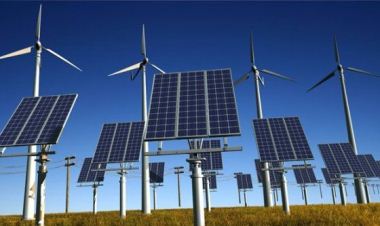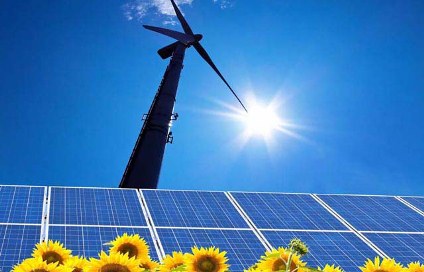The year 2050 is the deadline scientists have set for climate-damaging greenhouse gasses to be reduced worldwide by at least 50% compared to 1990 levels if the world must curtail average global warming by the end of the century.
Failure to achieve this target will mean that man has chosen extreme drought, flooding and possibly other environmental catastrophes.
Here at home in Nigeria, where ecological literacy and consciousness is acutely lacking, both in public and private life, this alarm sounded by the world’s renowned scientists may make little or no meaning. Among the eight leading industrial nations (G8), however, the alarm carries a lot of weight and is springing people into action in search of a sustainable solution.
That solution, found in renewable energy technology, as beneficial as it is already proving to the global environment, may spell doom for Nigeria’s economy which is largely based on the sale of crude oil.
Burning of fossil fuels derived from crude oil – petrol, diesel, kerosene, and engine oil – accounts for a huge amount of carbon dioxide responsible for global warming. Since 1992, global emissions of carbon dioxide have risen to almost a third to 30 billion tons a year, and the way out, according to scientists, is clean or renewable energy sources such as solar, wind, hydro and geothermal energy.
The renewable energy technology is not something the scientists of the industrialized nations are experimenting on, it is already a breakthrough and in use. All they are now talking about is expansion, which must surely come. In Germany, the leading country in renewable energy technology, about 6.43% of their energy consumption comes from renewable sources.
As early as 2009, the United States invested 112 billion dollars in green technology. More than a decade earlier, Al Gore, the former vice president of USA had disclosed that the new generation of environmental technology American companies can sell in the world market for pollution control is worth $500 billion a year. He forecasted that worldwide market for new energy technology will hit $10 trillion in two decades.
As early as 1992, Gore made the suggestion that American technology should move away from internal combustion engine (which involves burning of petrol, diesel, and engine oil) over the next quarter-century. After a brief opposition by enemies of the environment, American auto companies are making investments in alternatives to internal combustion engine, acknowledging that “environmentally preferable alternatives are key to future competitive success at home and overseas.”
Europe and China are not left out. China has thrown more than $20 billion into green technology. Europe’s recovery packages for the 2008 global financial crisis included 6 billion euros for renewable energies. Between 2009 and 20011, 500 million euros has gone into research in the field of electromobility which aims to integrate electric and hybrid vehicles into existing transport network.
Hybrid vehicles are expected to reach a market share of between 16 and 24% in 2020. “Without doubt, the future belongs to zero-emission electric cars,” says Martin Winterkorn, CEO of Volkswagen. And zero-emission electric cars mean cars that do not use petrol, diesel or engine oil. It means collapse of the oil market and industry and the economies that solely depend of it of which Nigeria is one.
Quietly, the renewable energy technology, called the third industrial revolution, is gaining ground, and after it has been well established, the industrialized nations will no longer need to buy crude oil from Nigeria or from any other oil producing nation. One day they may gather in Kyoto, Copenhagen or some other city, and with a stroke of the pen, make the burning of petrol, diesel and engine oil illegal as in slave trade. The big question is: what is Nigeria and those who are entrusted with the management of her economy and future doing about the approaching third industrial revolution?
Already, many countries and their car automobile companies are preparing for the investable era. In Europe and America, car companies that are even cutting down workforces are hiring electrical engineers to help them prepare for the time after internal combustion engine.
For how long are we Nigerians going to continue to play the ostrich, burying our heads in the sand, pretending that this and other problems do not exist? Change, especially in technology, is as certain as the fact that the sun will rise and set again tomorrow. It is such change that has always brought the end of many civilizations which ignored to prepare for it. It will be a very costly mistake for politicians in Nigeria to sit down in government houses, sharing oil revenue and believing that the oil will continue to flow endlessly from the oil wells of Niger Delta.
Even if we have this national psychosis of deriving pleasure from punishing ourselves, we cannot afford to leave a dead country for our children by leading them into an economic quagmire where they would be holding the rotten end of the wood among the comity of nations. Although it is certain that we are terribly late, it is better to start doing something now than nothing ever. The future belongs to individuals, companies, and countries that can tap into the renewable energy technology, efficient resource use invention, and green businesses.
PUBLISHED BY: OSA AMADI


